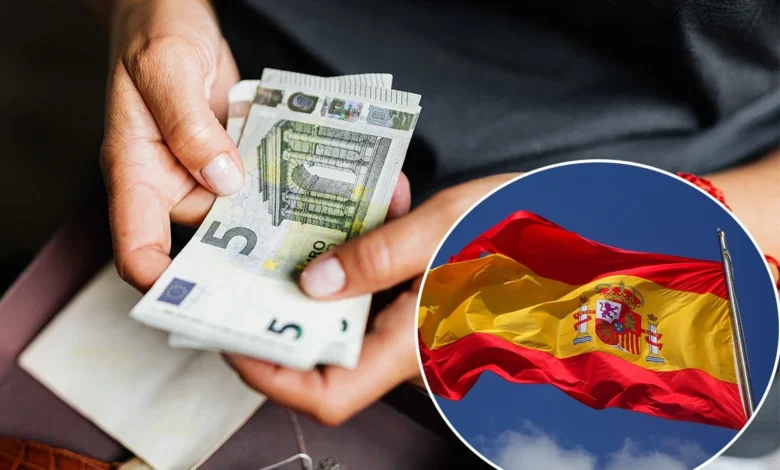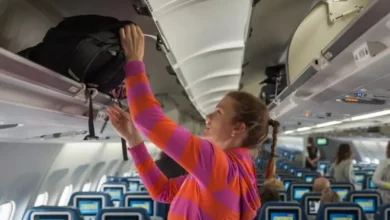Financial control is being tightened in Spain: what Ukrainian refugees need to know about cash circulation

After the start of a full-scale war, millions of Ukrainians were forced to leave their homes and seek refuge abroad. Spain became one of the countries that provided temporary protection to Ukrainian citizens and ensured access to basic social services, housing, medicine and education. However, with a long stay abroad, more and more questions arise related to adaptation to new rules, in particular in the field of finance. New restrictions on cash transactions have entered into force in Spain. They apply to all natural persons, regardless of citizenship or legal status.
What has changed?
Under the new rules, any cash withdrawal between €600 and €150,000 without prior notification to the tax authorities could result in a fine. Previously, such actions did not require additional declaration or explanation, but now the tax authorities of Spain are introducing stricter control over the movement of funds within the framework of the fight against money laundering, the shadow economy and the financing of terrorist activities.
From now on, any withdrawal of a large amount from a bank account must be previously agreed with the tax office – Agencia Tributaria. All suspicious or unannounced transactions may be subject to significant financial penalties.
According to the updated requirements, bank clients must inform the tax service in advance of their intention to withdraw cash in the following cases:
– for an amount of 3,000 euros or more – notification without a mandatory deadline;
– when withdrawing more than 3,000 euros, but less than 100,000 – at least in one day;
– for operations of EUR 100,000 or more – no later than 72 hours before withdrawal.
If a person is unable to document the origin of the funds, he may be fined up to 150% of the amount of such financial transaction.
New sanctions for money transfers or financial transactions without proven origin of money look even more serious. If a person cannot explain where the amount of the transfer came from, even if it is a banal money transfer between relatives, a fine of up to 150% of the transaction amount is provided.
Authorities justify these innovations by the need to counter illegal money circulation, financing of terrorist structures, and tax evasion. However, some economists and citizens themselves express concern: in their opinion, the innovations indicate increased state intervention in the private financial sphere and a gradual narrowing of personal economic autonomy.
What are the risks for Ukrainian refugees
Ukrainians who fled the war often still rely on cash: money taken from home, material assistance from relatives, cash transfers from charities or friends. Many continue to carry out transactions without open bank accounts, keep savings in cash or use cash when withdrawing funds from cards of Ukrainian banks.
In new conditions, this practice can become a source of problems:
- Withdrawing more than 600 euros from an ATM or cash register without a tax notice is considered a violation.
2. Receiving money transfers from abroad without confirming the origin of the funds may cause interest from fiscal authorities.
3. Keeping large sums of cash at home or attempting to transport it across the border without declaring it is a potential basis for a fine and criminal investigation.
This especially applies to people who receive assistance, but at the same time try to transfer or receive large sums in addition – even within the family. After all, for the tax authorities, such actions without proper justification look suspicious.
What is recommended for Ukrainians in Spain
- Open a bank account in Spain, even if you are under temporary protection. Most banks open accounts for people with temporary asylum status with a NIE (Alien Number) or passport.
- Make all money transfers through legal platforms and keep proof: receipts, screenshots, checks, explanatory letters from relatives. If you receive help from a charitable organization or community, ask for written confirmation.
- Avoid keeping large amounts of cash, especially at home. Not only is this dangerous from a security perspective, but it also potentially raises suspicion when trying to deposit those funds into a bank or use them in a large transaction.
- If you plan to withdraw a large amount, consult the bank in advance and find out whether you need to submit a declaration or a notification to the tax office. Sometimes it is enough to submit a short form online or notify through the bank application.
- Don’t accept cash from strangers without an explanation, even if it’s a “help transfer.” In case of verification, you will be responsible for proving the legality of these funds.
- Keep a timeline of your financial history: keep leases, payments, employment documents, assistance, education or participation in grant programs. All this can be useful in case of questions from the tax office.
The strengthening of financial control in Spain is part of the pan-European policy of transparency. However, vulnerable categories of the population, in particular refugees, are often at risk due to ignorance or habits formed in other economic conditions. It is important for Ukrainians not only to follow local rules, but also to proactively protect themselves by documenting financial activities, opening accounts and limiting cash transactions.
Therefore, Ukrainian refugees living in Spain or planning a trip there should be especially careful with cash, so as not to find themselves in a situation where a routine financial action could lead to serious sanctions. In the conditions of a long war and an uncertain future, maintaining financial legality and avoiding fines is a basic guarantee of stability and legal security abroad.





